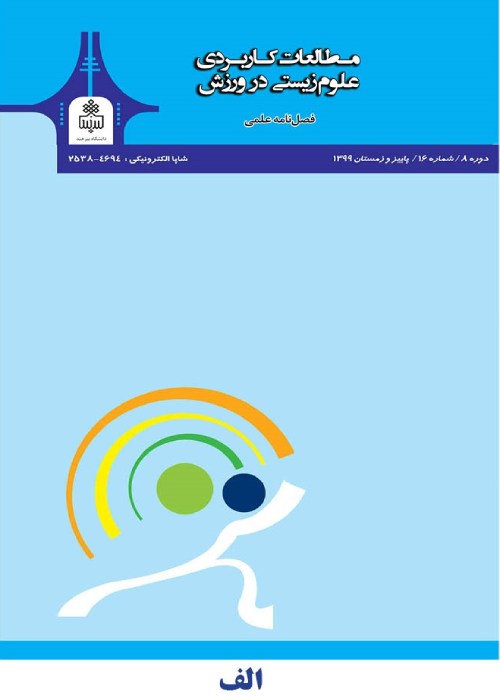Effect of fatigue induced by strength and endurance training on muscle co-contraction during leg press exercise in active women
The results of researches in the field of the effect of neuromuscular fatigue on muscle co-contraction are inconsistent and unclear. The cause of these contradictions can probably be seen as a result of the difference in the type of fatigue protocols in terms of the training load during resistance activity. Therefore, the aim of this study was to compare the effect of two protocols of fatigue caused by strength and endurance repetitions in resistance activity on muscle co-contraction during leg press movement.
Ten healthy active women (age: 24.2 ± 7.97 years) participated in this study. The participants referred to the laboratory in three separate sessions. In the first session, the amount of weight was determined for one repetition maximum (1RM) in the leg press movement. The second and third sessions, strength and endurance fatigue protocols in leg press movement were performed by the subjects with 90 and 50% of 1RM, respectively. The electrical activity of four selected muscles (rectus femoris, vastua lateralis, vastus medialis and biceps femoris) during leg press movement was recorded by a wireless electromyography device (Noraxon). The co-contraction of the muscles in three repetitions of the set of repetitions of leg presses (before fatigue, middle and exhaustion) was calculated for each subject and entered into statistical analysis. Data were analyzed using repeated measures analysis of variance.
Co-contraction of rectus femoris and biceps femoris muscles (p<0.03), vastus lateralis and biceps femoris (p<0.01), as well as vastus medialis and biceps femoris (p<0.01) significantly decreased due to fatigue. However, the co-contraction value of vastus lateralis and vastus medialis muscles did not change significantly due to fatigue. The mentioned changes were the same in both types of fatigue protocols due to strength and endurance repetitions (p>0.05).
Both types of fatigue protocols induced by strength and endurance repetitions in resistance activity led to a decrease in co-contraction in three pairs of four selected muscle pairs. The important finding of the present study was the lack of difference in the effect of fatigue protocol caused by strength and endurance repetitions on muscle co-contraction.
- حق عضویت دریافتی صرف حمایت از نشریات عضو و نگهداری، تکمیل و توسعه مگیران میشود.
- پرداخت حق اشتراک و دانلود مقالات اجازه بازنشر آن در سایر رسانههای چاپی و دیجیتال را به کاربر نمیدهد.


